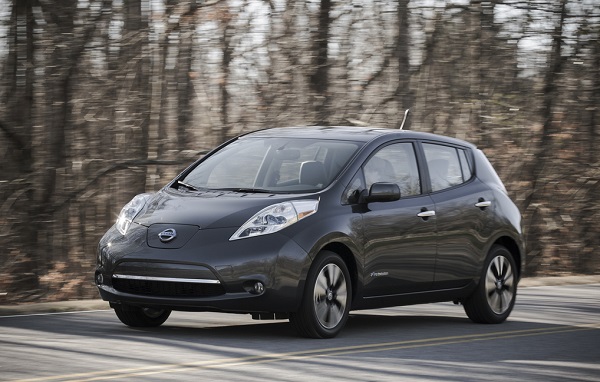Of about 440,000 battery driven vehicles sold in the United States last year, roughly 50,000 of those are considered pure electric vehicles, or that is to say, those that don’t meld an electric motor with a gas engine for a combined fuel economy. Though this number of electric cars sounds impressive, noted a major research firm recently, you have to put it in perspective – roughly 14.5 new million cars and trucks were sold in the same period in total, which amounts to the electrics having about 0.3 percent. That’s not especially awe inspiring.
Still, said Harris Interactive, “with more and more manufacturers producing battery-propelled vehicles of one kind or another, and fuel prices showing no sign of falling, many anticipate continued growth for the sector.” To find out actually how consumers feel about pure electrics versus other vehicle types, it recently did its magic polling process and found that “consideration has been on the rise over recent years for traditional hybrids, while other electric car segments – though showing points of growth – have been more sporadic in their gains.”

In its polling, Harris identified that
when asked which of several improved-efficiency vehicle types they would consider the next time they are in the market for a new vehicles, nearly half of American car owners (or anticipated owners) indicated that they would consider a traditional hybrid (48%), while nearly four in ten (38%) would consider a smaller and/or less powerful gas-powered vehicle. Just over one-fourth (27%) would consider a plug-in hybrid, two in ten (19%) an electric vehicle and 16% would consider a diesel vehicle. Roughly four in ten (41%) indicate that they would only get a vehicle with lower operating costs if they could do so without changing their driving habits or expectations.
They also found some other very interesting factoids, including:
- Echo Boomers (ages 18-35) are significantly more likely than either Baby Boomers (ages 48-66) or Matures (ages 67+) to consider a traditional hybrid or a smaller and/or less powerful conventionally propelled vehicle, and are more likely than any other age group to indicate that they would consider a plug-in hybrid or an electric.
- Men are significantly more likely than women to indicate that they would consider a plug-in hybrid (34% men, 21% women) and an electric vehicle (25% men, 14% women) and three times as likely to indicate that they would consider a diesel (24% men, 8% women).
- While interest in hybrid and electric cars does not change significantly when comparing those traveling 30 miles or less in an average day vs. those traveling 31 miles or more, interest in diesels, known for having long driving ranges, is roughly 70% higher among those traveling an average of 31 miles per day or more (13% 0-30 miles, 22% 31+ miles).
With regards to what are barriers for those considering buying electric vehicles, price and range anxiety, to no shock, continued to be the top concerns. A counter to this though is that a majority of Americans (56%) would be more likely to consider such a vehicle if it were incentivized with a free fast-charge station installed in their home.
“It’s important to note that hybrids were once a new, untested technology,” said Mike Chadsey, a Harris vice president, in a statement, “but have been slowly merging into the mainstream as more and more manufacturers put out their own versions of this vehicle type. It’s likely that this same progression could be seen within the plug-in hybrid and pure electric categories, though it’s important to note that traditional hybrids also gained an early boost from outside factors such as sharply rising gas prices and a strong environmental movement. Either could easily recur and, along with the steadily increasing number of companies offering their own takes on these newer categories, could help more and more of these vehicles find homes in mainstream garages.”